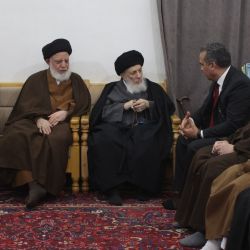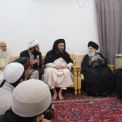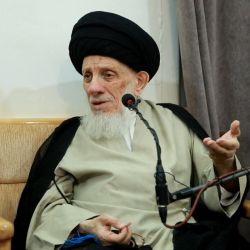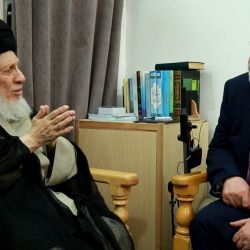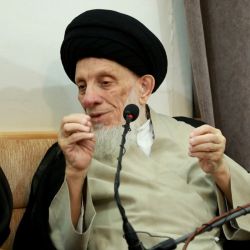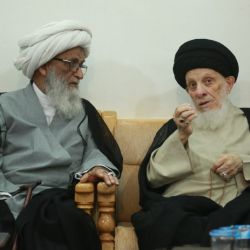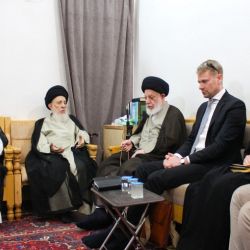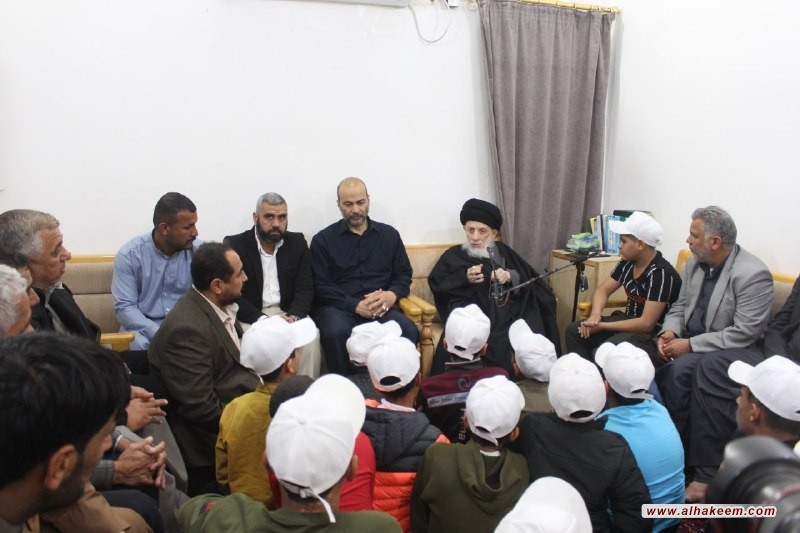
His Eminence Grand Ayatollah Sayyid Mohammed Saeed Al-Hakeem, on 16 February 2020, received a group of youth from Baghdad, children of martyrs who died fighting in the Popular Mobilization Forces (Al-Hashd Al-Sha’bi) against Daesh.
His Eminence praised the clear and manifest courage of their fathers and their sacrifice for their religion, their homeland and the holy shrines. By the grace of Allah and through their sacrifice and spilling of their noble blood, they were victorious over the enemies.
His Eminence called them to follow the Holy Prophet and the Imams of the Ahl al-Bayt (peace be upon them all), and that their ethics and morals should by distinctly higher than others, and that they should adhere to the teachings of the Sharia.
His Eminence concluded by praying to the Most High and Mighty to provide support for them and to support those who serve and help the orphans, that their Ziyarah is accepted, and that they see the blessings of it in this life and the Hereafter. He finally requested that his greetings and best wishes be conveyed to their families.


